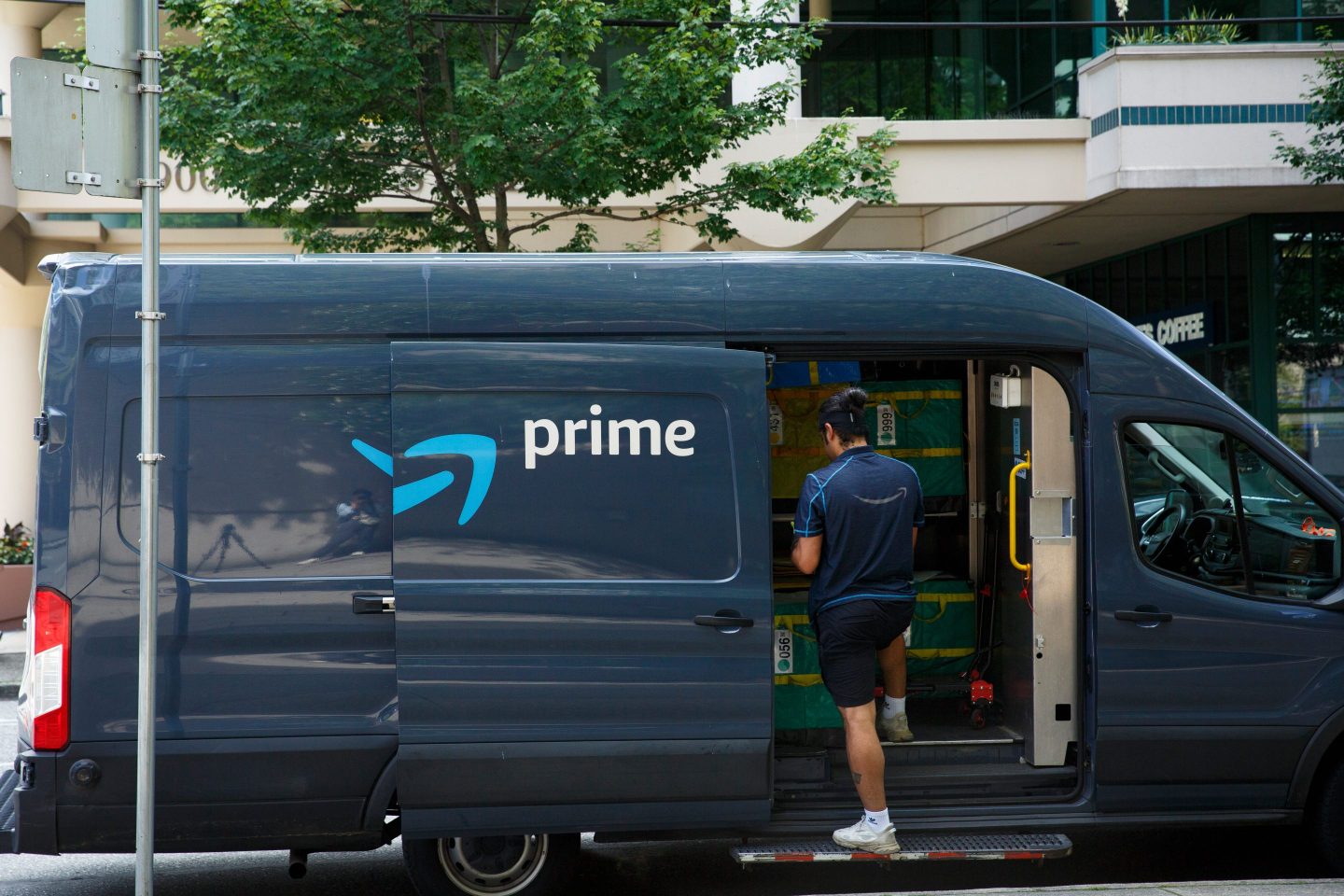At Amazon, “Leaders start with the customer and work backwards. They work vigorously to earn and keep customer trust. Although leaders pay attention to competitors, they obsess over customers.”
That description—with parts bolded for emphasis by this reporter—sits at the top of a webpage on Amazon’s corporate jobs site under a subtitle that reads “Customer Obsession,” which is the first and most famous Leadership Principle that Amazon has long said should guide how its employees act. Amazon’s Leadership Principles are so crucial to the company’s culture that CEO Andy Jassy last year filmed an hour-long tutorial on them, as factors including rapid hiring over the past decade have threatened to erode them.
But in a federal courtroom in Seattle, Washington, this week, Amazon’s famed top corporate credo is going on trial.
On Tuesday, a federal judge will begin hearing the Federal Trade Commission’s case against Amazon that alleges the company intentionally used manipulative practices to trick customers into signing up for the Prime membership service, and knowingly complicated the cancellation process.
The case, first filed by the FTC in 2023 under then-chair Lina Khan, outlined a half dozen ways that Amazon utilized misleading web design tactics, known as “dark patterns,” to get online shoppers to enroll in the Prime program when making a purchase, or make it frustratingly difficult to cancel. On the cancellation question, the regulatory agency cited a “four-page, six-click, fifteen-option cancellation process”—internally dubbed “Iliad”—that the agency said distracted or derailed customers on their way to cancel the membership.
“Amazon tricked and trapped people into recurring subscriptions without their consent, not only frustrating users but also costing them significant money,” Khan said in a press release announcing the lawsuit that year.
For a company that purports to be all about putting the customer first, the allegations laid out in the FTC case struck at the heart of how Amazon leaders want the world to perceive it. Like a coach revealed to be betting against their own team, Amazon’s actions, if proven unlawful, would amount to a fundamental breach of the trust the company asked consumers to give it. The agency wants the court to impose unspecified fines on Amazon and potentially force it to offer customer refunds if it wins the case, though the more lasting damage to Amazon might be in its credibility with customers and among its own employees to whom it stresses the sanctity of the leadership principles.
The agency is also asking the court to hold personally liable at least two Amazon executives—Jamil Ghani, a vice president and worldwide leader of Prime, and Neil Lindsay, formerly senior vice president of Prime—if Amazon is found to have broken the law.
Amazon has denied the agency’s claims and has said that Prime’s success is evident in high renewal rates and customer satisfaction scores. Amazon simplified the Prime cancellation process on its U.S. shopping site while the FTC was investigating the company, but before it had publicly announced a lawsuit.
Prime costs $139 a year in the U.S., or $14.99 per month, and includes perks like same-day delivery, free access to Prime’s extensive library of TV and movies, and unlimited photo storage. Over the years, it has transformed into the engine of the Amazon shopping machine, and perhaps the most industry-altering innovation in retail over the past 20 years. The company generated tens of billions of dollars in Prime membership revenue last year. Prime members shop more often, and spend more, than Amazon customers who don’t subscribe to Prime. Amazon would not be anything close to the Amazon we know today without the success of Prime.
But this is not the only instance of Amazon’s so-called “customer obsession” coming into question in recent years. For example, one notable evolution that some believe goes against the principle is the near-total takeover of the Amazon shopping experience by “sponsored products,” or ads.
As for Prime, the question is if a court rules Amazon achieved this success partly in unlawful ways, does the fallout incite any reduction in customer trust. Or, as Amazon argues, does the shipping and entertainment program’s longtime success—with more than 200 million members globally—speak for itself?
Are you a current or former Amazon employee with thoughts on this topic or a tip to share? Contact Jason Del Rey at jason.delrey@fortune.com, jasondelrey@protonmail.com, or through messaging apps Signal and WhatsApp at 917-655-4267. You can also contact him on LinkedIn, at @delrey on X, or @jdelrey on Threads.












